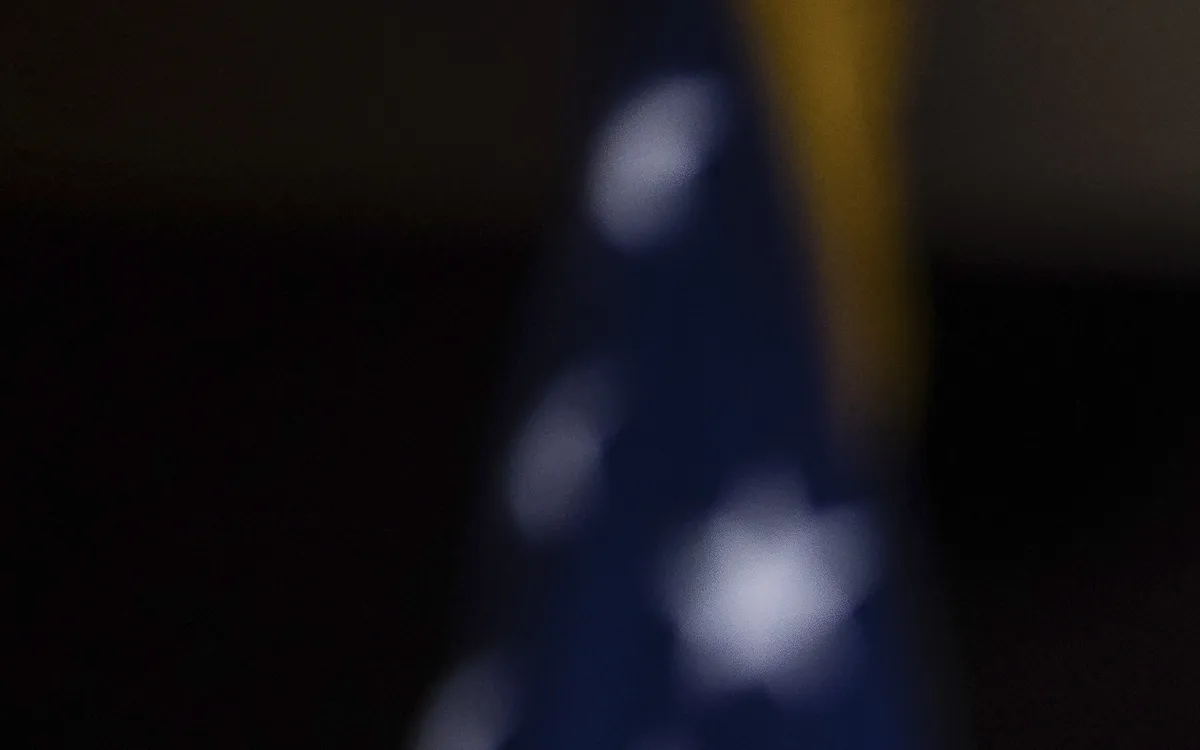
In a noteworthy display of political maneuvering, House Minority Leader Hakeem Jeffries delivered a powerful floor speech during the pivotal vote on Thursday, drawing attention to Republican moderates representing battleground seats. Many of these lawmakers had previously expressed deep concerns regarding the significant cuts to safety-net programs that are now poised to become law. Jeffries questioned, “How is it that so many of our Republican colleagues … had principled opposition to Donald Trump’s one big, ugly bill … and now seem prepared to fold on the floor of the House of Representatives?”
During his address, Jeffries highlighted letters from constituents who urged their Republican representatives, particularly those facing re-election in swing districts—such as Reps. John McGuire of Virginia, Derrick Van Orden of Wisconsin, and Ryan Mackenzie of Pennsylvania—to vote against cuts to Medicaid and the Supplemental Nutrition Assistance Program (SNAP). “All we need is four Republicans to show John McCain levels of courage,” he remarked, referencing the late Arizona senator who famously thwarted the GOP’s effort to repeal the Affordable Care Act in 2017.
Ultimately, only two Republicans earmarked by Democrats for the 2026 elections—Maine Sen. Susan Collins and Pennsylvania Rep. Brian Fitzpatrick—voted against the bill. The structure of this major legislation guarantees that the most politically sensitive provisions will remain contentious and provide an opportunity for moderates to voice their concerns in the coming years. For instance, Sen. Josh Hawley (R-Mo.), who voted in favor of the expansive domestic policy package, committed to ensuring that cuts to state taxes funding Medicaid would not take effect. The Senate's decision to cut back on states' ability to levy these taxes was met with intense lobbying from Hawley and other moderates, especially after Sen. Thom Tillis (R-N.C.) cautioned that these cuts could have dire consequences in the midterms.
The reductions to medical provider taxes, which are crucial for leveraging federal funding, are set to commence in three years, with rates decreasing from the current 6 percent to 3.5 percent incrementally. “Unless changes are made … you’re going to see Medicaid reductions in my state,” Hawley warned reporters last week, calling it "a huge mistake."
Similarly, sixteen House moderates urged Speaker Mike Johnson in June to revert to the Senate’s original language regarding the cuts. Although they all ultimately supported the bill, some members saw a chance to revisit these substantial cuts in the future. “Any of the changes in the provider tax don’t go into effect until ’28, so he’s right, there’s time,” Rep. Dan Newhouse (R-Wash.) stated, acknowledging the need for reform while expressing optimism about their current trajectory.
The benefit cuts are poised to become a major topic in the 2028 presidential race, particularly with potential candidate Vice President JD Vance emerging as a prominent advocate for the “big, beautiful bill” and a defender of the administration’s approach. Democrats are already strategizing to associate themselves with the bill’s least popular components. Furthermore, lawmakers across nearly every state will face increased pressure in 2028 as provisions come into effect requiring states to cover part of the costs for federal food aid for the first time.
Under the new legislation, states with SNAP payment error rates exceeding 6 percent will have to contribute 5 to 15 percent of the food benefit costs. Historical data analyzed by the left-leaning Center for Budget and Policy Priorities indicates that only one state has ever maintained a low enough error rate to evade this new cost-sharing requirement. Meanwhile, Trump’s significant campaign promises to cut taxes for tipped wages, overtime work, and seniors are scheduled to expire at the end of 2029. Blue-state Republicans, who fiercely advocated for an increase in the state-and-local-tax (SALT) deduction, are already considering making this enhanced deduction permanent in the future.
The SALT deduction, which was increased from $10,000 to $40,000, was designed by House Republicans to adjust with inflation until 2033, eventually becoming permanent thereafter. However, Senate Republicans modified the proposal to ensure that the larger deduction would only last five years, reducing the overall cost of their tax package by over $100 billion. This issue is expected to be central for lawmakers in swing districts like Reps. Young Kim (R-Calif.) and Nick LaLota (R-N.Y.) as they gear up for their 2026 re-election campaigns, in addition to Democrats competing for the same seats.
In response to Jeffries’ criticisms, Rep. Mike Lawler (R-N.Y.) remarked, “I listened to Hakeem Jeffries pontificate about this. He got exactly zero changes when Democrats had complete control. We delivered on a promise that I made when I first ran, and this is a big win.” Lawler touted the tax cuts as the “single biggest tax cut in the bill.” When questioned about the possibility of New Yorkers pushing to ensure that the SALT cap does not revert to $10,000 after 2029, he affirmed, “Of course.”
The ongoing discussions among various Republicans regarding the possibility of extending temporary tax cuts while postponing spending cuts raises significant questions about the true cost of this legislation. The Senate Republicans had to dilute many of Trump’s priorities to accommodate costly business tax cuts, leading to a final bill that is estimated to add an additional $1.1 trillion to the national debt compared to the original House-passed plan, according to the nonpartisan Committee for a Responsible Federal Budget.
“I prefer permanence. I prefer not to create cliffs,” stated Senate Finance Chair Mike Crapo (R-Idaho), who was instrumental in crafting the Senate's tax bill. He expressed concerns about the fiscal limitations that prevented him from making Trump’s latest tax proposals permanent. “There are terminating provisions, and all I can say is that I prefer not to do that anymore than we have to.” Sen. Kevin Cramer (R-N.D.) pointed out that policy sunsets are “common” in extensive legislative packages, while Sen. Mike Rounds (R-S.D.) acknowledged that future legislative bodies would likely revisit these issues, further complicating the fiscal landscape.